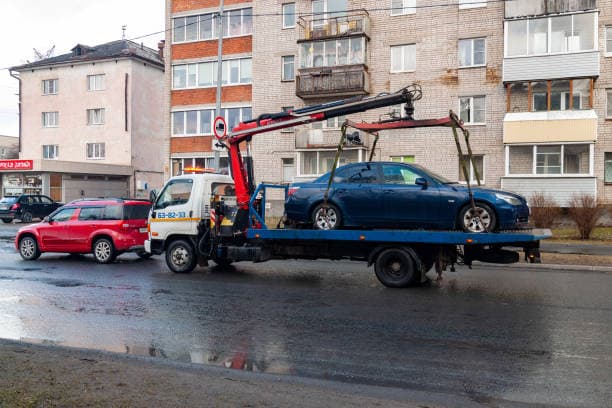Introduction
Your vehicle is an essential part of your daily life, getting you from point A to point B safely and efficiently. However, like any machine, cars and trucks require regular maintenance to function properly. Ignoring warning signs can lead to expensive repairs, breakdowns, or even dangerous situations on the road. Knowing when your vehicle needs immediate attention can save you time, money, and stress. Here are the key signs that indicate your vehicle requires urgent repairs.
1. Warning Lights on the Dashboard
Modern vehicles are equipped with a variety of warning lights designed to alert drivers to potential issues. If any of these lights turn on, it’s a clear sign that something is wrong.
- Check Engine Light: This could indicate a minor issue like a loose gas cap or a major problem such as a failing catalytic converter.
- Oil Pressure Light: Low oil pressure can lead to severe engine damage.
- Battery Warning Light: If this light appears, your battery or alternator might be failing.
- Brake Warning Light: If this light stays on, your braking system could be compromised.
Ignoring these warnings can lead to serious mechanical failure, so it’s best to get your vehicle inspected immediately.
2. Unusual Noises
Strange sounds coming from your vehicle should never be ignored. They often indicate underlying mechanical issues that require prompt attention.
- Grinding or Squealing Brakes: This suggests that your brake pads are worn out and need replacement.
- Knocking Sound from Engine: A knocking noise could mean there’s a problem with the engine bearings, which could lead to engine failure.
- Hissing or Whining: These sounds often indicate a leak in the cooling system or an issue with the power steering.
- Loud Exhaust Noises: A damaged exhaust system can increase emissions and decrease engine performance.
If your vehicle starts making strange noises, it’s best to have a professional diagnose the issue immediately.
3. Smoke or Unusual Smells
If you notice smoke or strange odors while driving, stop the vehicle as soon as it is safe to do so and investigate the issue.
- Smoke from the Exhaust: Black smoke may indicate a fuel system issue, while blue smoke suggests burning oil.
- Burning Smell: This could be caused by overheating, an electrical short, or a slipping clutch.
- Sweet Smell: A sweet, syrup-like odor may mean there’s a coolant leak.
- Rotten Egg Smell: This often points to a failing catalytic converter or fuel system issue.
Any unusual smoke or odor should be checked out immediately to prevent further damage.
4. Leaking Fluids
Vehicles rely on various fluids to operate efficiently. If you notice a puddle under your car, it could indicate a serious issue.
- Red or Brown Fluid: This could be transmission or power steering fluid.
- Dark Brown or Black Fluid: Indicates an oil leak.
- Bright Green, Orange, or Pink Fluid: Often a sign of a coolant leak.
- Clear or Slightly Yellow Fluid: Typically brake fluid, which is crucial for safe driving.
If your vehicle is leaking fluids, schedule a repair immediately to avoid breakdowns.
5. Decreased Performance and Poor Fuel Efficiency
A sudden drop in your vehicle’s performance or gas mileage can be a red flag.
- Sluggish Acceleration: This could indicate an issue with the fuel system, air filter, or spark plugs.
- Rough Idling or Stalling: A malfunctioning fuel injector or faulty ignition system may be the cause.
- Hard Starting: Difficulty starting the engine could mean a failing battery, starter, or fuel pump.
If you notice these signs, get your vehicle checked before the problem worsens.
6. Difficulty Steering or Handling
Steering and handling issues can make your vehicle unsafe to drive.
- Shaky or Vibrating Steering Wheel: Often caused by unbalanced tires, alignment issues, or worn suspension components.
- Pulling to One Side: Indicates misalignment, uneven tire wear, or braking system problems.
- Stiff or Loose Steering: Could be a sign of low power steering fluid or worn steering components.
Ignoring these issues can lead to dangerous driving conditions, so seek repairs promptly.
7. Overheating
An overheating engine is a serious problem that can lead to engine failure if not addressed.
- Temperature Gauge Rising Quickly: Keep an eye on the temperature gauge and pull over if it gets too high.
- Steam Coming from the Hood: Indicates a coolant system failure or radiator issue.
- Coolant Leaks: A visible coolant leak can mean a cracked radiator or failing water pump.
If your car overheats, turn off the engine and seek assistance immediately.
8. Brake Problems
Brakes are one of the most critical safety components in your vehicle. Any issues with them should be addressed immediately.
- Soft or Spongy Brake Pedal: Could indicate air in the brake lines or low brake fluid.
- Vibrations When Braking: Suggests warped brake rotors.
- Longer Stopping Distance: Worn-out brake pads or failing brake components could be the cause.
- Burning Smell After Braking: This might indicate overheated brakes or a stuck caliper.
If you experience any of these symptoms, have your brakes inspected right away.
9. Transmission Issues
Transmission problems can be costly and dangerous if ignored.
- Delayed or Slipping Gears: Indicates low transmission fluid or worn-out components.
- Burning Smell: Often caused by overheating transmission fluid.
- Unusual Noises in Neutral: Suggests internal damage.
- Fluid Leaks: Transmission fluid leaks can cause severe damage.
If you suspect transmission problems, get your vehicle checked by a professional.
Conclusion
Your vehicle gives you warning signs when something is wrong, and addressing these issues promptly can prevent expensive repairs and keep you safe on the road. If you notice any of these symptoms, don’t wait—schedule an inspection with A1 A Auto and Truck today. Our experienced technicians can diagnose and fix any issue to ensure your car or truck stays in top condition.
Don’t ignore the warning signs—your safety depends on it!









